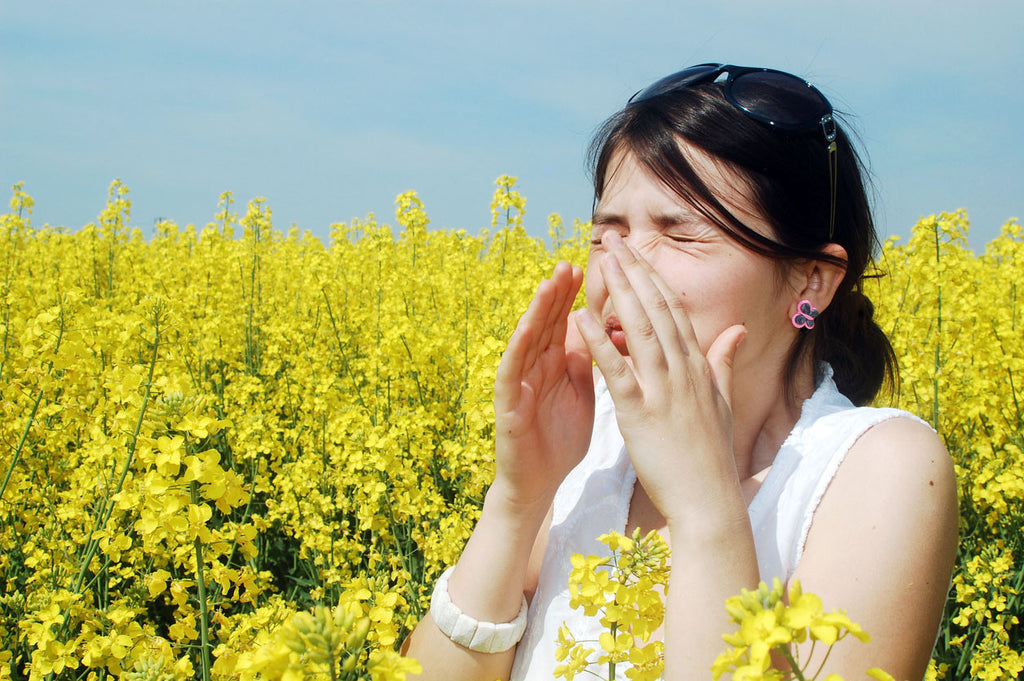What is Bee Pollen?
Honey bee pollen is created from flower pollen bees bring back to the hive. Mixed with nectar and enzymes secreted by worker bees who pack the pollen granules into comb cells, these granules, known as bee pollen or bee bread, are the primary source of protein for bees.
Bee pollen varies in composition depending on the floral pollen collected. In general, bee pollen consists of 55% carbohydrates, 35% proteins (and all 22 protein-building amino acids), 3% vitamins (carotenoids, B-complex etc.), minerals (mostly phosphorus, potassium, calcium and magnesium), 2% fatty acids, and 5% other compounds (enzymes, trace elements and antioxidants). Minerals found in bee pollen include calcium, phosphorus, potassium, sulfur, magnesium, copper, iodine, zinc and iron. It also contains several chemical constituents including bioflavonoids, carotenoids and terpenes that are essential for honeybees to survive and thrive.
Bee Pollen For Natural Allergy Relief
The benefits of bee pollen are many. Traditional uses include natural allergy relief, for building stamina, strength and endurance in athletes, as an immune system booster, for gastrointestinal problems and as a natural anti inflammatory. Recent research provides a scientific basis for the traditional healing potential of honey. A 2010 Turkish study on a honey bee pollen mixture versus bee pollen, showed the combination improved anti inflammatory activity, improved antioxidant defense and improved sensitivity to allergens.
The bioflavonoids in Bee Pollen have been shown to exert anti-inflammatory effects within the human body and may be useful in diminishing or preventing the symptoms of certain allergies. A recent study reported on in The Journal of Medicinal Foods indicated that certain lipid-soluble components of bee pollen inhibit the activation of mast cells that are responsible for the symptoms of an allergic reaction. The same article stated that bee pollen may also inhibit reactions to leukotrienes, which can trigger allergic reactions.
With all the benefits of bee pollen, incorporating it into your daily routine is easy. To make a warm healthy tea ground bee pollen and pure honey with warm water for a sweat and healthy drink.
References
Journal of Medicinal Food: Inhibitory Effect of Honeybee-Collected Pollen on Mast Cell Degranulation In Vivo and In Vitro
Memorial Sloan-Kettering Cancer Center: Bee Pollen
University of Florida IFAS Extension: Producing Pollen
Vanderbilt University: Beelieve It or Not!
University of Pittsburgh Medical Center: Bee Pollen
Note: This article should not be considered substitutes for professional medical care and are not intended to diagnose, treat, cure or prevent any specific disease and is for informational purposes only. Bee products may cause allergic reactions in some individuals, consult your health care practitioner for guidance.

